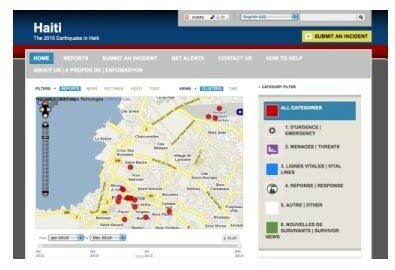This past week I drove down to Vancouver, BC for a meeting. It’s an approximately eight to nine hour drive – sixteen to eighteen return trip. Thankfully the roads were great. Here are three stories regarding social media that I heard on the radio as I drove.
The first story was about an Australian man who found a camera washed up on a beach in Queensland – Australia’s east coast. Surprisingly the memory stick in the camera was still intact. This fellow was able to take a look at the photos and then took it upon himself to try and track down the camera owners. He studied the pictures for any clues; a bunch of the pictures had snow and beer in English. Through online research he started to narrow the camera owners down to most likely Canadian. There were also pictures of the Eiffel Tower – so he started to think maybe French Canadian.
Using Facebook, this guy started a page, posted pictures to that page asking if anyone recognized these folks. He then started targeting French Canadian folks – he explains how he made sixty new French Canadian “friends”. Eventually, his Facebook campaign worked and someone recognized the photos got word to the camera owners and the camera and its owners were reunited.
The most impressive part of this whole event – it took less than six weeks.
The second story I heard surrounded the devastation in Haiti. Again, Facebook has been employed for people to post pictures of missing loved ones and to communicate out to loved ones that they are alive. Some of the stories of the effectiveness of this are remarkable.
The third story was one that was initially quite depressing. CBC Radio was interviewing a 40-year expert on disaster response. He basically said – every time there’s a disaster (Pakistan earthquake, Southeast Asia tsunami, Hurricane Katrina, etc.) the response and coordination is terrible. This was on the heels of stories of planes circling the Port-au-Prince airport for multiple hours because there was no space to land, or park once landed. There were also various stories of aid agencies and various countries disaster response teams stepping on each others’ toes.
And yet, once I was able to get online I was able to find pretty incredible examples of the Internet, mobile phones, and social media working wonders for raising money and serving as communication platforms to get word out. For example, with as simple as a text message to the Red Cross people can donate $10 a text.
I also found this non-profit company . As the folks at this company explain:
The Ushahidi Engine is a platform that allows anyone to gather distributed data via SMS, email or web and visualize it on a map or timeline. Our goal is to create the simplest way of aggregating information from the public for use in crisis response.
 Check the website – this open source software is used in a variety of diverse circumstances – to mapping wildlife interactions in Africa, to crime in Atlanta, to the violence in Kenya, to now mapping situations in Haiti. Pretty impressive.
Check the website – this open source software is used in a variety of diverse circumstances – to mapping wildlife interactions in Africa, to crime in Atlanta, to the violence in Kenya, to now mapping situations in Haiti. Pretty impressive.
As one digs deeper into these social media mediums there are all sorts of examples of the changing field of crowdsourcing, building ‘tribes’, building followers and so on. Obama utilized the technology brilliantly in his presidential campaign. There’s the eBird example I posted yesterday. And in other work, I am seeing various technology companies with proprietary software or tools starting to lose market share to open source solutions that are often built by the masses as opposed to source code deeply protected and buried deep in some concrete vault (e.g. Windows).
In the salmon world, and especially the Pacific salmon world, the range of these fish is growing smaller in the sense of people. There are now various cross-ocean initiatives – for example, Portland, Oregon based Wild Salmon Center is doing work on the Kamchatka peninsula of Russia and connecting people around the Pacific Rim with things such as .
What’s going to happen when social media tools are fully employed?
My own humble opinion is that the ‘business’ of how we look after salmon will certainly be pulled from the clutches of the many bureaucratically buried scientists and fish ‘managers’ and returned somewhat to the masses of people who’s lives are everything salmon…
Famous scientist Carl Sagan suggested:
We’ve arranged a global civilization in which most crucial elements […] profoundly depend on science and technology. We have also arranged things so that almost no one understands science and technology. This is a prescription for disaster.
